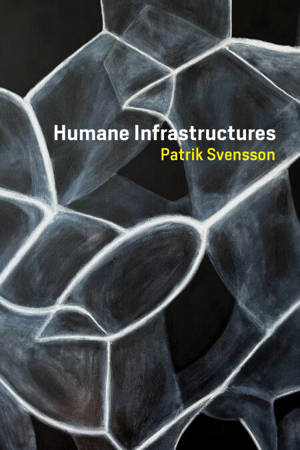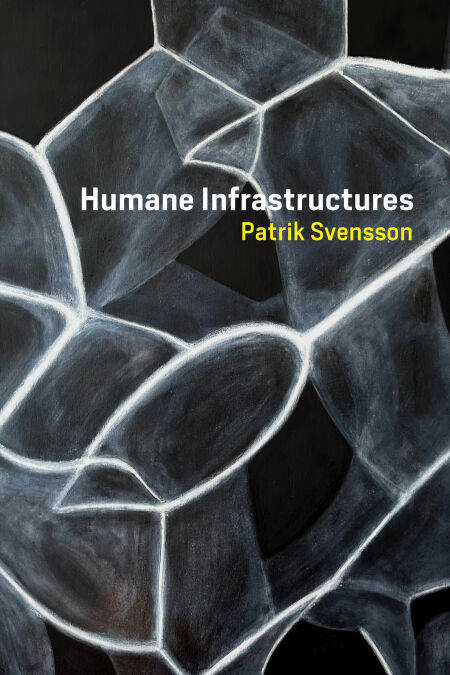
- Retrait gratuit dans votre magasin Club
- 7.000.000 titres dans notre catalogue
- Payer en toute sécurité
- Toujours un magasin près de chez vous
- Retrait gratuit dans votre magasin Club
- 7.000.0000 titres dans notre catalogue
- Payer en toute sécurité
- Toujours un magasin près de chez vous
Description
How we can work together to understand, imagine, and build humane infrastructures and a better world.
Humane Infrastructures is a deep journey into humanistic and humane knowledge and how it can be engaged to help us collaboratively respond in ethical and sustainable ways to our current global challenges. Patrik Svensson takes the reader through a series of examples, case studies, experiments, and lively dialogues to reconsider infrastructure. He brings people, ideas, and perspectives in through a set of documents and documented experiences, some of which draw from the author’s practice in Umeå, Stockholm, New York City, and Los Angeles. And he proposes frameworks, such as the idea of an infrastructure clinic, exploring them in staged dialogues and thought experiments.
Imagining and building humane infrastructures require us to challenge the very nature of infrastructure, not necessarily all at once but rather step by step. The author consequently engages with infrastructure as a concept and frames it historically, critically, and creatively with research infrastructure as a central case study. He also considers integrative niches for humanities-related work, such as environmental humanities and disability studies, as sites for critical and constructive engagement with infrastructures, including the university itself. In the end, the exploration leads to a reimagination of the humanities and, more generally, higher education as part of a capacious public-facing effort of world-(re)building.
The book will appeal to scholars in the humanities and a range of intersecting fields, such as infrastructure studies, critical computing, and design.
Humane Infrastructures is a deep journey into humanistic and humane knowledge and how it can be engaged to help us collaboratively respond in ethical and sustainable ways to our current global challenges. Patrik Svensson takes the reader through a series of examples, case studies, experiments, and lively dialogues to reconsider infrastructure. He brings people, ideas, and perspectives in through a set of documents and documented experiences, some of which draw from the author’s practice in Umeå, Stockholm, New York City, and Los Angeles. And he proposes frameworks, such as the idea of an infrastructure clinic, exploring them in staged dialogues and thought experiments.
Imagining and building humane infrastructures require us to challenge the very nature of infrastructure, not necessarily all at once but rather step by step. The author consequently engages with infrastructure as a concept and frames it historically, critically, and creatively with research infrastructure as a central case study. He also considers integrative niches for humanities-related work, such as environmental humanities and disability studies, as sites for critical and constructive engagement with infrastructures, including the university itself. In the end, the exploration leads to a reimagination of the humanities and, more generally, higher education as part of a capacious public-facing effort of world-(re)building.
The book will appeal to scholars in the humanities and a range of intersecting fields, such as infrastructure studies, critical computing, and design.
Spécifications
Parties prenantes
- Auteur(s) :
- Editeur:
Contenu
- Nombre de pages :
- 336
- Langue:
- Anglais
- Collection :
Caractéristiques
- EAN:
- 9780262362290
- Date de parution :
- 28-04-25
- Format:
- Ebook
- Protection digitale:
- Adobe DRM
- Format numérique:
- ePub

Les avis
Nous publions uniquement les avis qui respectent les conditions requises. Consultez nos conditions pour les avis.






